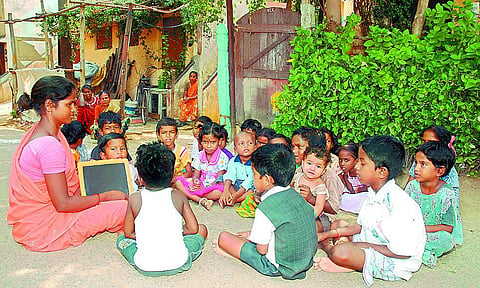

BENGALURU: A report released by People’s Union for Civil Liberties (PUCL) on Sunday paints a sorry picture of food and nutrition supply by the state government to women and children during the lockdown. Of 80 villages/localities assessed, anganwadi centres in 10 of these areas have not provided rations to children up to 6 years of age. This report has been submitted to the Karnataka High Court.
Altogether 75 per cent of pregnant and lactating women received incomplete rations from anganwadis. Only 13.75 per cent of adolescent girls who suffer from malnutrition got rations from anganwadis. Significantly, 73.75 per cent of respondents had not received the iron/folic acid tablets that must be given to pregnant women. However, only 9 of 80 surveyed areas reported that rations were not provided to students through the mid-day meal scheme.
“While the food schemes are functional and most people have received some sort of rations, it will not last till the end of the lockdown, even if they extend it. Karnataka’s children already face a huge malnutrition problem. It may become worse because of the lockdown,” the report stated. Prof YJ Rajendra, president, PUCL –Karnataka told TNIE, “There is a Supreme Court and Union Government order that you cannot stop food and nutrition services during the lockdown.
However, the education department and the women and child development department have not complied with this. The food security of the vulnerable has been ignored during this lockdown due to the lack of will.”
HUGE GAPS
There is a wide dispar-ity in the quantities of rations provided by ang-anwadis. In PDS shops, only rice and wheat is dis-tributed. In 10 cases, shops were not open. “Ration shop owners insisted on Aadhaar cards and OTP verification even though the govern-ment said it was not mandatory,” the report stated.